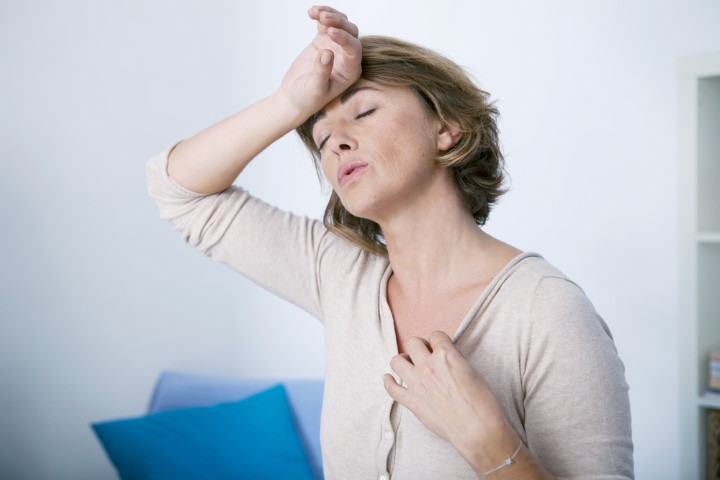Menopause is very complex and can affect every woman differently. However, there are some very common menopause symptoms that all women who transition into menopause should be aware of in advance. With this in mind, our reproductive healthcare providers wanted to discuss some of the most common effects of menopause and how they can be treated.
Hot Flashes
Hot flashes are the first thing many women associate with menopause, and for good reason. Over two-thirds of women experience hot flashes during the perimenopause period. Hot flashes cause sudden feelings of warmth and skin redness, most commonly in the face, neck, and chest. Although we do not yet know the exact cause of hot flashes, there are effective treatment techniques that can help provide relief. We recommend avoiding certain triggers like drinks with alcohol and caffeine, eating spicy foods, and smoking. Medicinal therapies like hormone replacement therapies (HRT) and other medications like Estrovera, Relizen, and Brisdelle may also help.
Night Sweats
Hot flashes that occur at night are a very common cause of night sweats. Unlike normal nighttime flushing or redness, night sweats are characterized by especially heavy perspiration that can leave bed sheets soaked and make it nearly impossible to sleep comfortably. To help reduce the prevalence and severity of night sweats, we strongly recommend keeping the house at a chill and comfortable temperature, especially at night. Sleeping in lighter clothes instead of heavy pajamas can help. And keep chill drinking water nearby.
Urinary Incontinence & Vaginal Health
Menopause can lead to vaginal health symptoms as well including vaginal dryness, vaginal looseness, and urinary incontinence due to lost volume and elasticity in the bladder. Depending on the type of incontinence, women may experience sudden urges to urinate (urge incontinence) or the leakage of urine after minor physical activities like coughing or laughing (stress urinary incontinence). Thankfully there are many effective urinary incontinence treatments available including pelvic floor therapy and FemTouch™ non-surgical laser vaginal rejuvenation.
Mood Swings
Mood swings are incredibly common during the transition into menopause. This is a natural effect of hormone fluctuations that occur during this time. It’s perfectly normal to experience increased feelings of anxiety, fatigue, irritability, and moodiness. Relaxation techniques that can help minimize stress including yoga, meditation, and breathing exercises, in addition to eating a healthy diet and exercising regularly, may be able to help. If not, prescription medications may be of assistance. As an added bonus, some of these medications may also be able to help reduce hot flashes.
Being knowledgeable, prepared, and well-researched before menopause can be incredibly helpful for women when it comes to smoothly handle their transition. For more information on menopause or to schedule a consultation with our board-certified gynecologist, please contact Gynecology Associates of Gwinnett. You can also follow along with us on Facebook and our medical spa, MadEmEl Medical Aesthetics, on Instagram.


